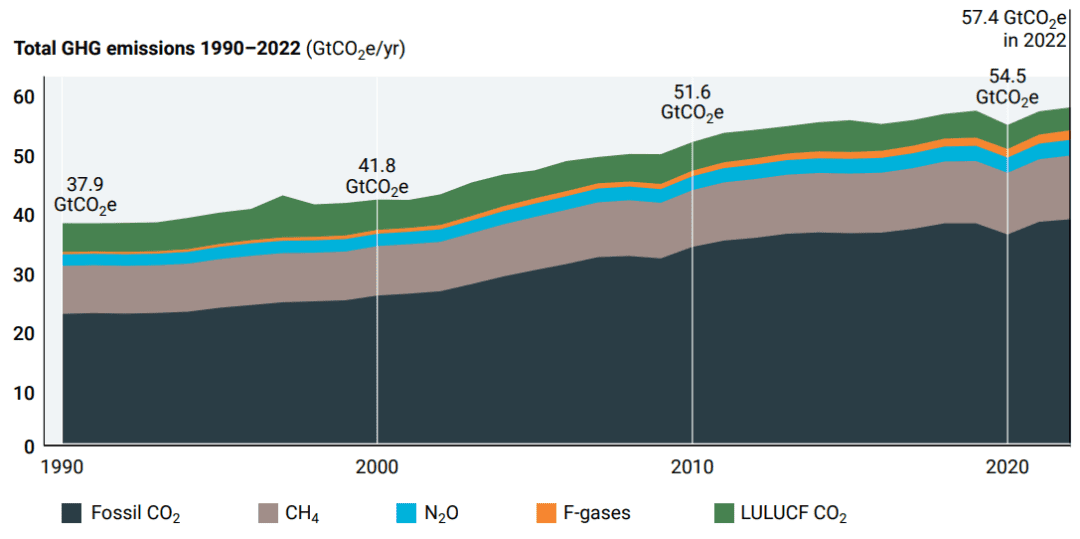A new report from the United Nations Environment Programme (UNEP) shows that under current policies, the planet will warm by 3°C by the end of the century - twice the most ambitious target of the Paris Agreement.
According to the Emissions Gap Report 2023, governments and businesses must take urgent action to reduce greenhouse gas emissions by 42% by 2030, limiting global warming to 1.5°C. A 28% reduction in emissions would result in a 2°C global warming.
The report finds that global greenhouse gas emissions increased by 1.2 per cent between 2021 and 2022, reaching a new record of 574 billion tons of carbon dioxide equivalent.In 2022, G20 greenhouse gas emissions increased by 1.2 per cent. Emission trends reflect global patterns of inequality. As a result of these worrying trends and inadequate mitigation measures, world temperatures will rise much faster than the climate goals agreed for this century.
Total greenhouse gas emissions, 1990-2022

Note: Fossil CO₂ is fossil CO₂, CH₄ is methane, N₂O is nitrous oxide, F-gases are fluorinated greenhouse gases, and LULUCF CO₂ is land-use change and forestry CO₂.
We know that the 1.5°C limit could still become a reality, says UN Secretary-General António Guterres. It will require eradicating the toxic root cause of the climate crisis: fossil fuels. It requires a just and equitable renewable energy transition.
The 28th United Nations Climate Change Conference (COP28), to be held in Dubai, United Arab Emirates, from November 30 to December 12, 2023, will explore the results of the first-ever global stocktake, which assesses progress toward the Paris Agreement goal of limiting global temperature rise to below 1.5°C. The Emissions Gap Report is the UNEP focal point report released each year ahead of the annual climate negotiations.

